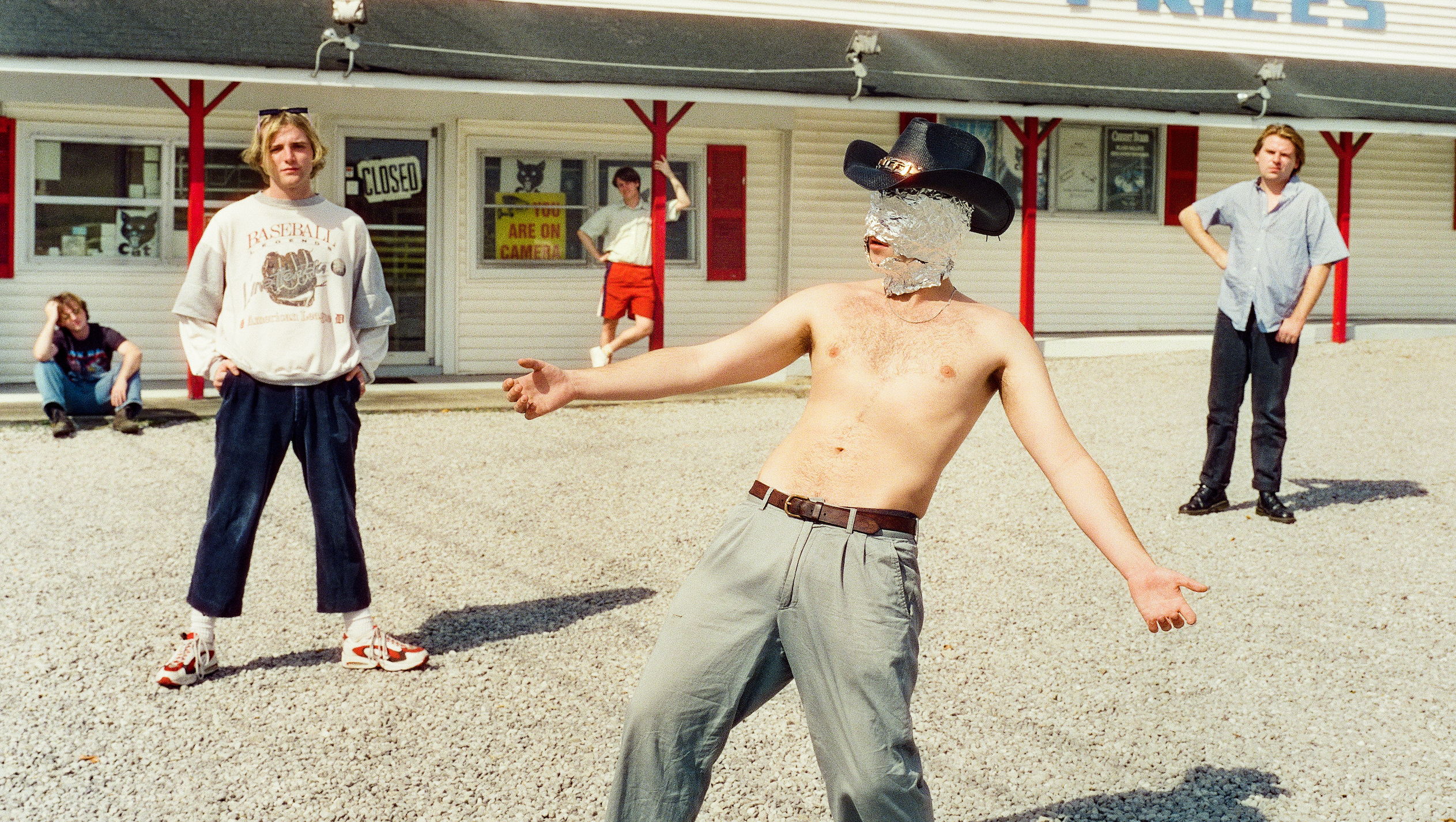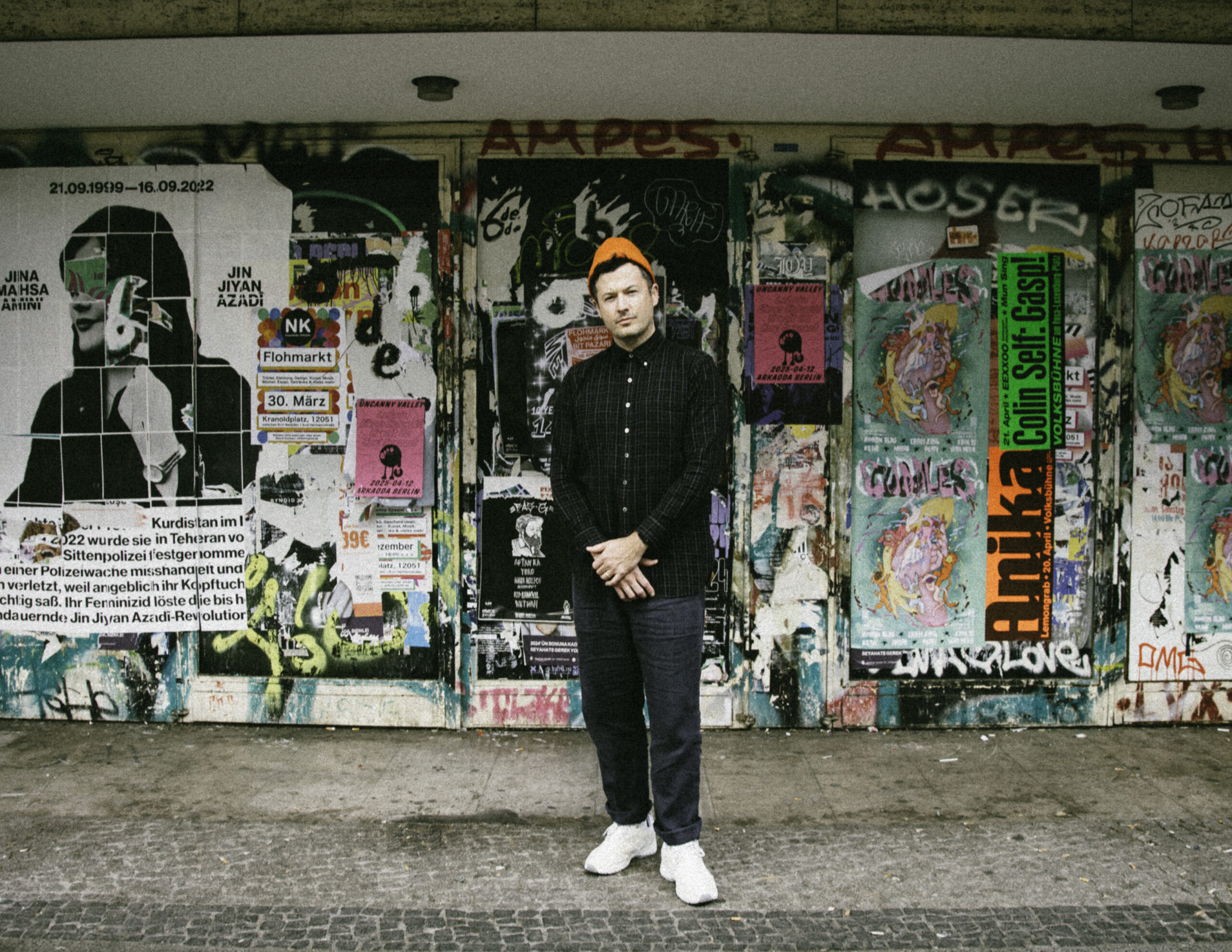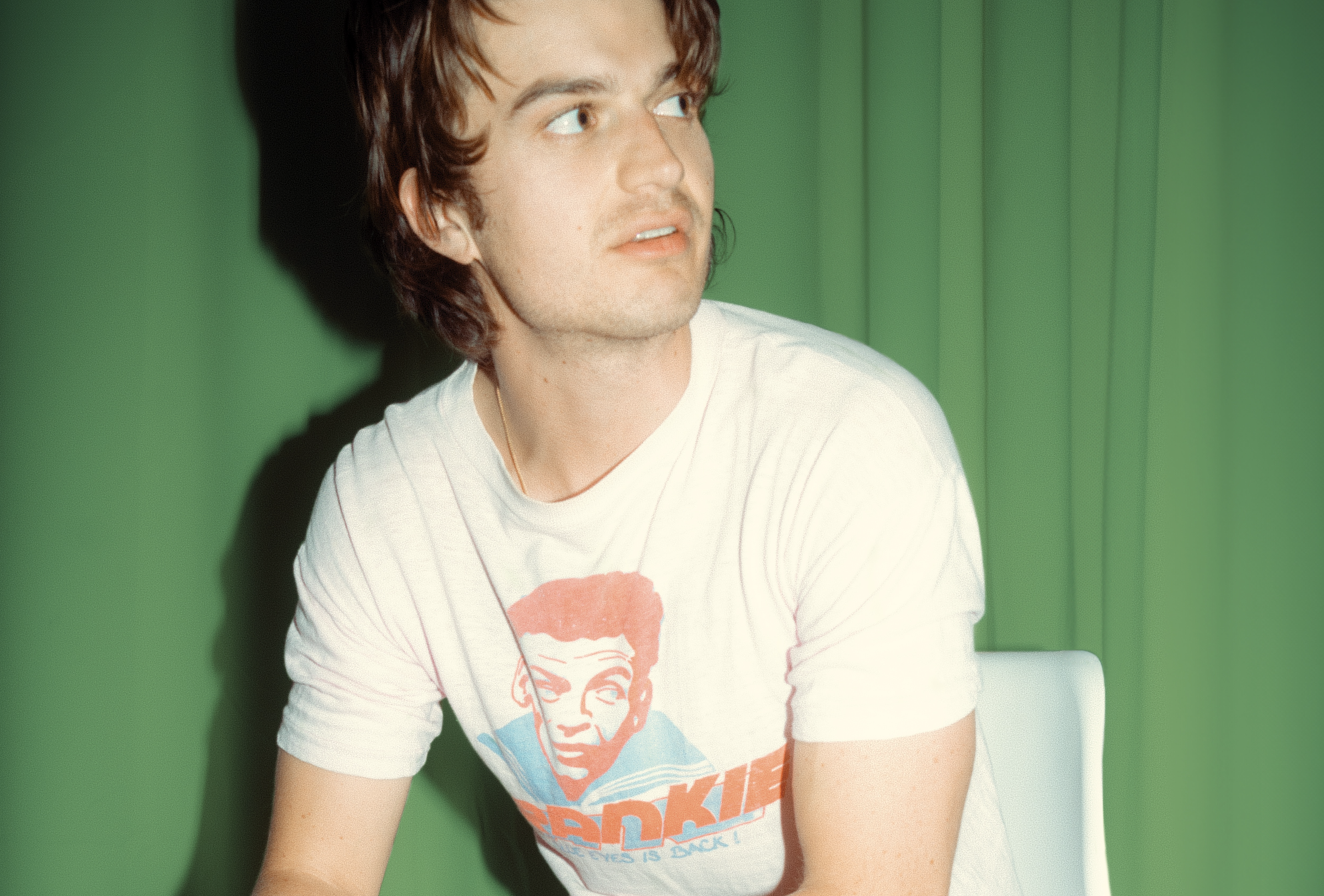Foto-© Pooneh Ghana
Kaum war die Tour zum gefeierten Zweitwerk Drunk Tank Pink abgeschlossen, legten die britischen Indie-Rocker shame nach und kündigten mit Food for Worms (VÖ: 24.02.23 via Dead Oceans) das erste Album an, bei dem die Band nicht in sich gekehrt ist, sondern den Fokus auf die Welt um sich herum legt: “Ich glaube nicht, dass man ewig in seinem eigenen Kopf sein kann”, sagt Sänger Charlie Steen dazu. Bei einem Gespräch mit einem Freund nach einem ihrer Auftritte kam ihm ein abschweifender Gedanke, den er festhielt: “Es ist seltsam, nicht wahr? In der populären Musik geht es immer um Liebe, Liebeskummer oder um sich selbst. Es gibt nicht viel über deine Kumpels.” Drum erinnert Food for Worms an eine gewisse Mortalität, andererseits feiert es das Leben und die Einsicht, dass wir uns letztlich doch alle gegenseitig brauchen.
Gleichzeitig markiert das Album eine klangliche Abkehr von allem, was sie zuvor gemacht haben. shame haben ihre Post-Punk-Anfänge für weitaus vielseitigere Einflüsse aufgegeben und schöpfen aus den scharfen, aber unkomplizierten lyrischen Beobachtungen von Lou Reed und den melodischeren Werken der deutschen Band Blumfeld aus den 90ern. shame beauftragten den renommierten Produzenten Flood (Nick Cave, U2, PJ Harvey, Foals) mit der Umsetzung ihrer Vision. Die Live-Aufnahme jedes Titels bedeutete eine Art Kapitulation: Hier geben die rauen Kanten dem Album seine Textur; die Fehler sind interessanter als die Perfektion. In gewisser Weise erinnert das so an den Titel des Albums und daran, dass die Band mit dieser Platte ihre Zerbrechlichkeit umarmt und damit eine neue Quelle der Tapferkeit erschließt.
Wir sprachen mit Frontmann Charlie Steen über die Komplexität platonischer nicht-romantischer Beziehungen, die besonderen Bedingungen der Entstehung des neuen shame-Albums während Corona, was sich für die Band seit dem Debüt geändert hat und über seine Obsession mit dem Spiel Backgammon – unser Interview!
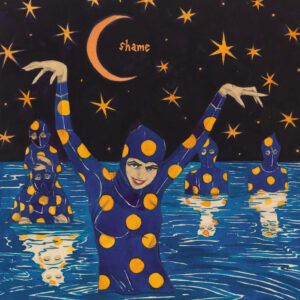 Unlike perhaps some of the previous shame records, this is an outwards, rather than an inwards pointing album. It’s about the complexity of platonic relationships, and wanting to be completely intertwined with a friend but knowing there are boundaries. What’s interesting about that is the context for that is usually a romantic relationship – can you talk a bit about how you navigated that convention in a new light, and turned the stereotype on its head?
Unlike perhaps some of the previous shame records, this is an outwards, rather than an inwards pointing album. It’s about the complexity of platonic relationships, and wanting to be completely intertwined with a friend but knowing there are boundaries. What’s interesting about that is the context for that is usually a romantic relationship – can you talk a bit about how you navigated that convention in a new light, and turned the stereotype on its head?
I think the looking outwards is going back to the first album a bit more. The first album was a lot more direct address and it was a lot more social commentary. And then the second one was very inward and sort of living in my head and stuff like that. On Food for Worms it’s not like the themes of friendship aren’t new. For example, like the films even out at the moment, like the Banshees of Inisherin. When I was a kid I loved all those coming of age films like Stand By Me and my favourite film was Withnail and I. But it’s not very prevalent in music, it’s a lot more common in films. I would say that Withnail and I is more romantic than most romantic comedies, you know, because you’re dealing with all the same things. Also your best friends, they’ve known you for sort of your whole life, you know, they’ve really seen you change and just because you don’t have that physical involvement doesn’t mean it can’t be romantic. In fact that allows all these other things to come into play. I guess other than the fact that it’s not sexual all the same themes are in there.
It’s your fastest recorded album, right? It was part written and recorded on the road. And this is recorded live as well, which makes the vocal performances sound different to the way that they did on the previous ones. There is a more vulnerable vocal feel.
Yeah and we were waiting like three months. I was saying yesterday – we did a Maida Vale session yesterday – that when we released the second album, which was in the height of COVID, suddenly we needed to explain this narrative around an album, especially at that time when you can’t do any live shows. The first one kind of writes itself because it’s your first album, it’s the first songs you’ve written, and then you need to start thinking about it. If you can’t explain what you’re doing, there’s no point doing it, you know? And I think with this one, it just came sort of quite naturally because it was written in such a concise period of time.
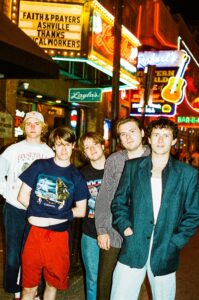 There’s a slacker vibe with a hint of Morrissey to your delivery. You’ve also developed your sound into something that almost resembles indie pop. It’s very textured and the mix is more latticed than separate. There are rises and falls. My favourite song on the album is Orchid, which I think if you didn’t know that was a Shame song, you wouldn’t guess it. It has these sick backing vocal parts.
There’s a slacker vibe with a hint of Morrissey to your delivery. You’ve also developed your sound into something that almost resembles indie pop. It’s very textured and the mix is more latticed than separate. There are rises and falls. My favourite song on the album is Orchid, which I think if you didn’t know that was a Shame song, you wouldn’t guess it. It has these sick backing vocal parts.
Well, a lot of things happened when we made Drunk Tank Pink. The first one had been out. It did really well, and we just toured and toured. You know, 264 gigs one year, 117 the next year. And then it came to doing the second album and it was done in a different way where we recorded it individually and as the band had been saying in interviews we were burned out from wanting to do anything post-punk and that kind of thing. And then there’s also the element of you’ve got to have a single because what is a single has to be for radio and has to be 3 minutes and the vocals have to come in immediately and blah and all of those things. I’m sure some people out there can understand that formula. And that’s fine. But Flood, our producer this time said this great thing, which was “I don’t want you to think of any of these songs as a single”. Nobody was allowed to say that in the studio the whole time we were recording because it’s a kiss of death. I trust him on that because as soon as you say this is going to be the main single, how can it ever be good enough? You just kind of smother it and you get a doubt about it. So when you ask about do we want to go in a different direction, all we thought about was the individual song. What does a song need, not what does the radio need. It was just what we as a group of people thought that the song should go for. People keep picking Orchid. I’m quite surprised by that personally, but it’s a really nice surprise. I know that’s Sean’s favourite and Forbes’s favourite. That was one that came from an idea in 2021 and Sean came in and had the guitar part and then we went from there. We were playing it live at the time before we went into the album with and it’s kind of heavy on stage and stuff, and we tried recording in those ways in the studio, but wanting to try something different. In the end we were just like, oh well, it was written on an acoustic guitar, just play the acoustic guitar.
shame is one of the few cases where the band is named after the theme of the music. You’ve been outspoken about body insecurity and you always take off your shirt during performances as an act of defiance. Where does this idea of running towards your fear to combat shame come from, and how far can it take you?
We started this band when I was 16 and at that time I had enough friends to start a band throughout the secondary school experience. But I got picked on a lot for the first few years, and I think it kind of comes from that. When we went to the Queen’s Head, which was a pub in Brixton, and we started the band, everyone there who was older, people in their forties, stuff like that, were all listening to music that I liked and they were all dressing the way that I would want to dress but would never dress to go into school or anything, wearing a suit or something like that. I think it was just one of those times where you find your pack, I guess. When you’re being picked on you kind of don’t have much left to lose. If you get on stage, you’re free to take your shirt off and feel no shame. You’ve heard it all before, you know what I mean? There’s nothing. There’s nothing more that can really be said. So it’s kind of like the final liberation.

You’re still tackling dark subject matters on this album too. You’re talking about prescription drug addiction on Adderall, and there’s like there’s a lot of stuff on the album about trying to help people, but not telling people close to you what they should be, and those two sentiments kind of being odds with each other. Do you think writing these songs makes you a better friend? Or at least do you think working through this stuff lyrically helps you get perspective on things?
Yeah, definitely. I don’t know whether or not it’s the right perspective. I just need to sort of vent because it’s consuming in my mind, you know, whatever’s going on around me. I’m kind of a control freak. And so it’s kind of like a journal to try and understand why you feel this way or make sense of things that are out of your control. Which is linked to the Food for Worms expression because that’s an inevitability that is out of our control that we’re all going to go through and that’s okay. There are some things you can’t control. I don’t know if it makes me a better friend. I think it’s just sort of like a stage of friendship, I guess.
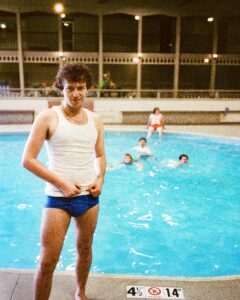 What do you like to do outside of playing music? Do you have any other big hobbies or obsessions?
What do you like to do outside of playing music? Do you have any other big hobbies or obsessions?
I’ve got a few things. I love playing backgammon.
Tell me more about that.
I’d always seen it, and always wanted to know how to play, and then on the US tour our tour manager showed me, and I’ve been obsessed with it since. My mum for Christmas got me a travel kit. I’m going to take on tour with us.
How many games of backgammon are you playing in a week, do you think?
Well, nobody will play it with me. I get a lot of hate because I get quite obsessive and addicted to things. I guess if I include on my phone, like 70 a week.
Whoa, that is a lot. So is there a perfect game of backgammon?
I just think it’s every game. Because when it finishes, you just put it back together again.
shame Tour:
26.03.23 München, Technikum
27.03.23 Berlin, Festsaal Kreuzberg
28.03.23 Hamburg, Markthalle
04.04.23 Köln, Gloria










